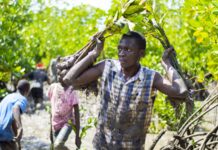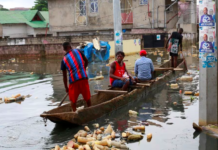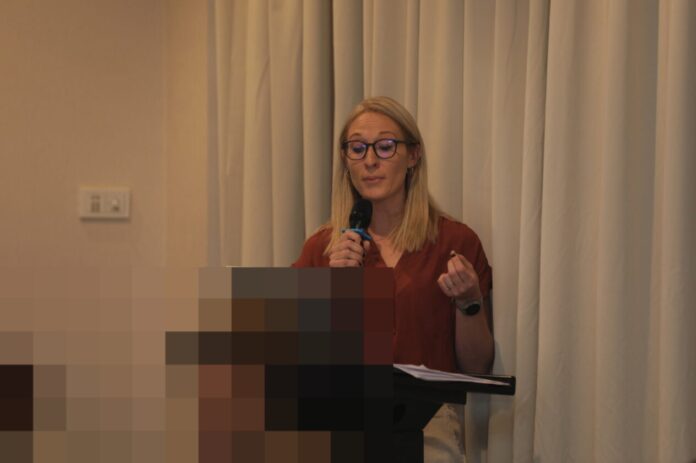
By Omboki Monayo
Nairobi, Kenya: Climate think-tank Power Shift Africa has inaugurated a sweeping Pan-African campaign, “Adapt2Live,” calling for global reinforcement in adaptation and resilience measures for Africa, emphasizing the continent’s urgent need in the evolving climate discourse.
Mohamed Adow, who is the Director of Power Shift Africa, voiced the urgency, stating, “The time to postpone bold climate adaptation aspirations is long gone. Africa cannot afford further delays when our communities suffer the impacts of a climate crisis we didn’t instigate. Ambitious, collective, and intentional actions are mandatory. The campaign highlights issues from food security to land rights, placing people at the forefront of decisions to boost investments that assist frontline communities to adapt and thrive.”
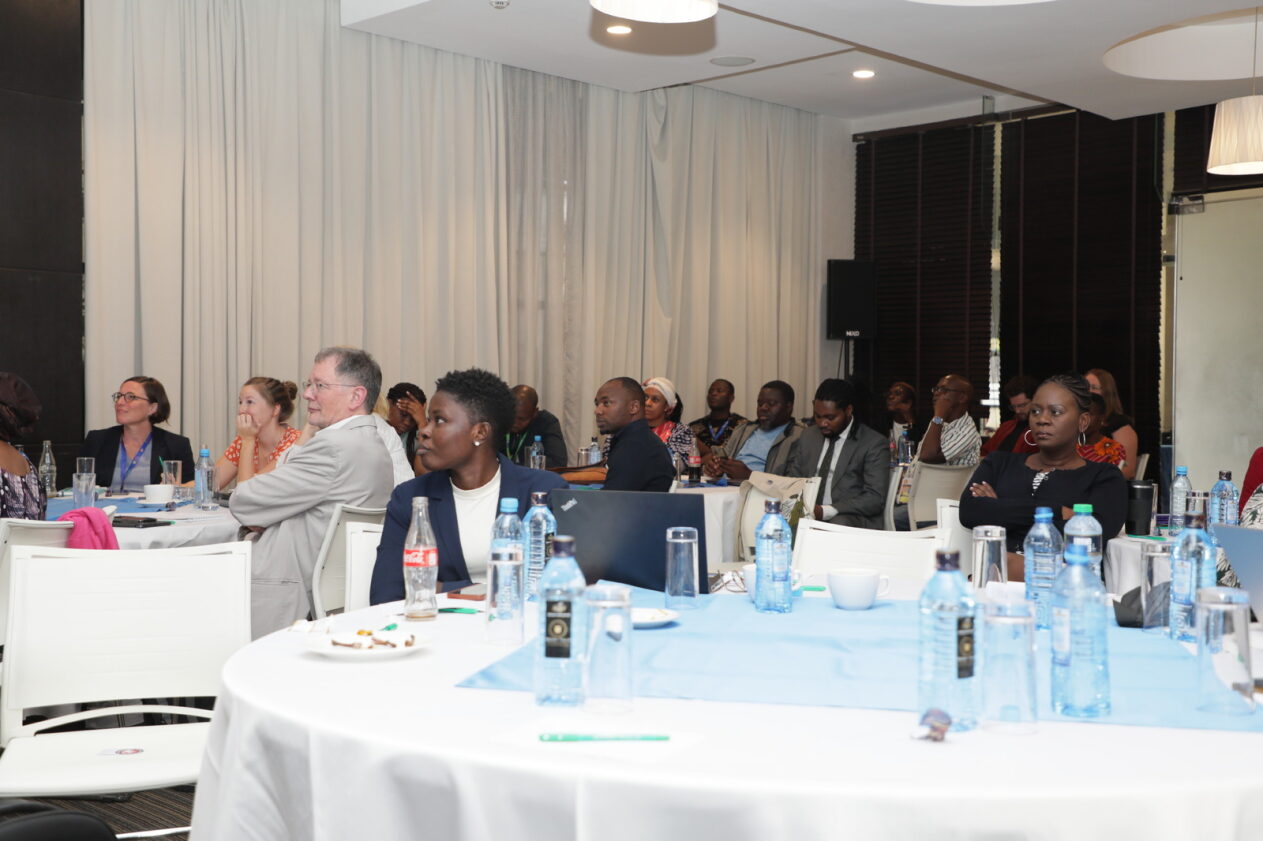
Speaking on September 13, 2023, the Adapt2Live organizers remarked on the recurrent sidelining of adaptation in multilateral climate agendas, harming Africa’s potential response to the escalating climate emergency. The prevalent reactive and piecemeal approach to adaptation is glaringly insufficient. Among the contentious issues is the disbursement of funds to help Africa mitigate loss and damage caused by climate change.
In 2009, developed countries committed to providing US$100 billion per year to fund climate change adaptation and mitigation in developing countries. Since then, they have moved at a sluggish pace to meet that commitment. This amount does not however cover the current damages from the climate impacts that the world is experiencing.
Africa is the most vulnerable continent to the effects of climate change due to its low adaptive capacity, as a result of financial and technological limitations, and an over-reliance on rain-fed agriculture. The continent is also witnessing a higher rate of warming than the global average of 0.15°C per decade between 1951 and 2020. Given the observed global warming, it is projected that the continent will experience an increase in hot extremes and more frequent and intense rainfall extremes.
The projected changes in climate are likely to cause devastating impacts across the continent. The recent reports of food insecurity as a result of drought in East Africa and the Horn of Africa region are just but a few examples of the menace posed by climate change.
Amy G Thorp, Senior Adaptation & Resilience Advisor at Power Shift Africa, elucidated, “The climate emergency presents an immediate, intergenerational risk to Africa’s communities and biodiversity. Africa’s adaptation requisites and financial burdens have been neglected, resulting in detrimental consequences for our continent. The Adapt2Live campaign is a testament to Africa’s pressing adaptation needs and highlights the extant rights-based, people-driven solutions across the continent.”
According to the World Economic Forum, the continent continues to bear the brunt of extreme weather, which sometimes results in the loss of lives, property, livestock, and livelihoods. Over the past three decades, Africa has grappled with cataclysmic events from devastating floods to intense droughts, embodying the dire urgency of the climate situation.
In the 10 years from 1995 to 2015, WEF records that Africa suffered 136 episodes of drought, 77 of which were in the region of East Africa alone. In 2015 southern and northern Africa were hard hit by drought, with South Africa experiencing one of the worst droughts of the century in 2018 that left many residents without access to clean drinking water.
Devastating floods have also struck Niger, Mozambique, the Democratic Republic of the Congo, Madagascar, Angola, and Malawi. Between 2015-2016, the El Niño phenomenon, which consists of the cumulative meteorological effects of the ocean current which runs to the south and east of African coasts, threatened the existence of 40 million Africans with food insecurity.
Despite the importance of adaptation in the climate dialogue, WEF notes that significant recent events such as the just concluded Africa Climate Summit did not pay much attention to the issue.
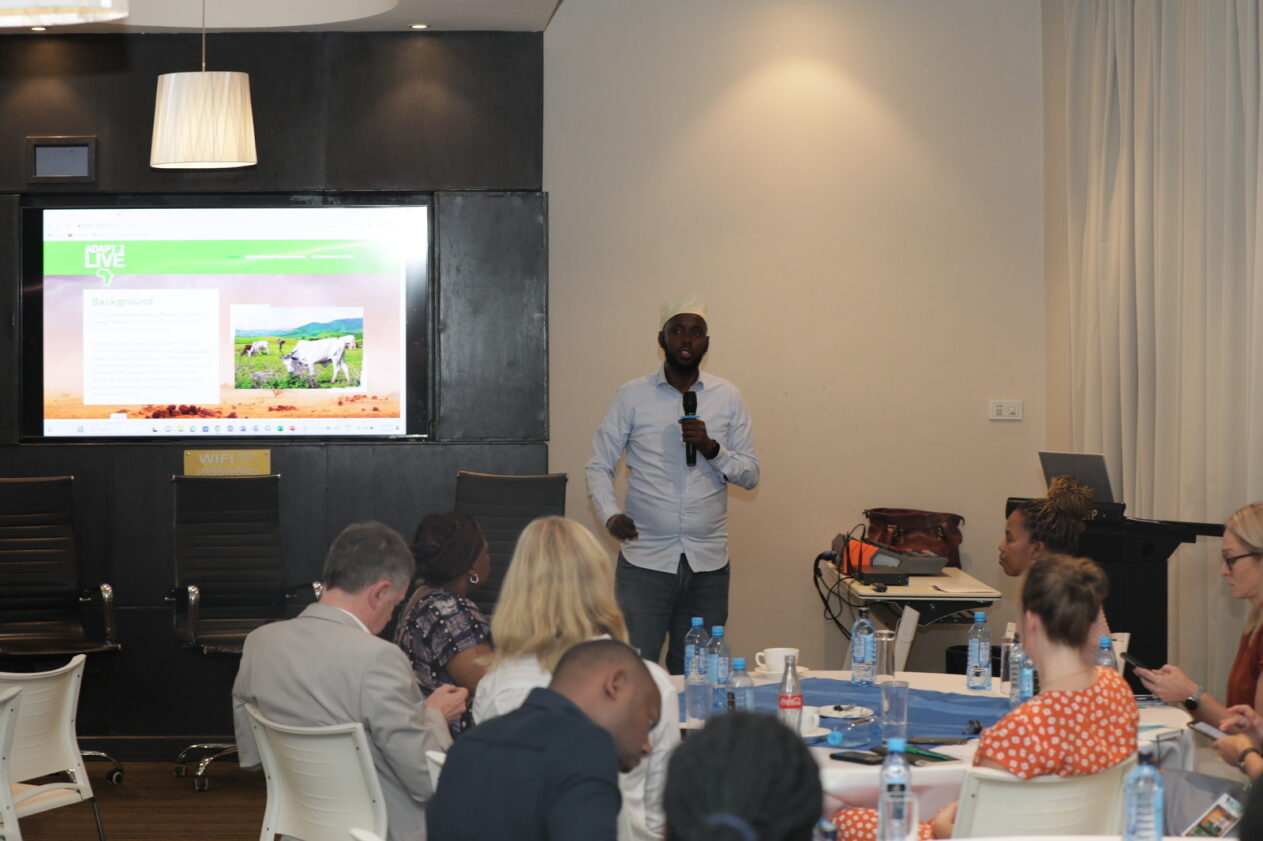
Since the beginning of this century, the International Monetary Fund (IMF) estimates that sub-Saharan Africa has suffered losses of over US$520 million annually in direct economic damages due to climate change. The cost of implementing the continent’s response to climate change-related challenges is estimated at between US$7 billion and US$15 billion per year. This is projected to balloon to US$35 billion per year by 2050. By 2050, the IMF estimates that climate change will cost Africa a whopping 4.7% of its GDP while North America will lose 1.1% of its GDP.
Adapt2Live is leading a spirited chorus of pro-African voices that have taken the strong stand that the Global North and other wealthy nations outside the expansive region can no longer afford to disregard the concerns of African nations. In order for the continent’s 54 nations to define and set out a comprehensive adaptation agenda based on their needs and solve the region’s most pressing problems, solve the problems the continent is currently facing, immediate action must be taken.
Notably, experts are acknowledging that the continent possesses an array of adaptation solutions rooted in indigenous knowledge systems. These traditional mechanisms have been instrumental in presenting local solutions, enhancing resilience, and safeguarding African communities and ecosystems.
Speaking to Talk Africa, Bhekhumuzi Dean Bhebhe, who serves as a Campaigner for Don’t Gas Africa, added, “The Adapt2Live campaign is a tapestry, each thread meticulously crafted to spur growth and combat poverty through sustainable African development, prioritizing people and their necessities. Its inception is timely.”
Furthermore, Lorraine Chiponda, Lead Coordinator of Movement Building Space, highlighted the necessity for immediate action. “African leaders can no longer delay adaptation efforts. Recurring droughts, cyclones, and other climate disasters perilously threaten livelihoods, food sovereignty, and water access. The continent must prioritize climate adaptation and resilience discussions. Our actions will dictate the continent’s survival in the face of the climate crisis.”
As the world watches, the Adapt2Live campaign has come as a clarion call for Africa’s resilience and adaptation in the face of an ever-worsening climate scenario.
Over 180 African civil society organizations recently appealed to President William Ruto of Kenya, who also chairs the Committee of African Heads of State and Government on Climate Change, urging for robust adaptation commitments. The clear consensus is that, with minimal emissions, Africa’s surest response to the climate change challenge lies in adaptation – building resilience and pursuing developmental pathways that sidestep further emissions.
SIDEBAR
Adapt2Live aims to:
- Elevate the discourse on adaptation and ‘Loss and damage’ within the global climate conversation.
- Advocate for reforms in the global financial structure, emphasizing climate finance.
- Amplify media attention on adaptation to raise public awareness.
- Lobby for a significant boost in global and regional funding for climate adaptation, gauged by countries’ vulnerability and adaptation requisites.
- Encourage African governments to incorporate traditional and indigenous knowledge into adaptation strategies.
- Champion community participation in shaping adaptation policies and funding.
omboki2725@gmail.com


